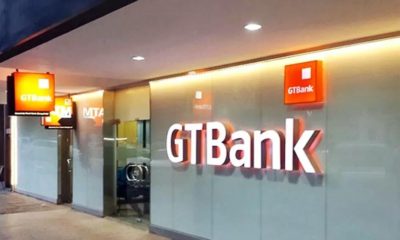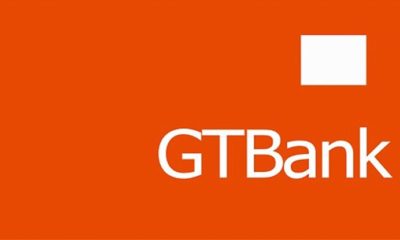Guaranty Trust Bank (GTBank) has initiated legal proceedings against 60 top executives from 13 commercial banks in Nigeria.
The action stems from an ongoing dispute involving a N17 billion Anchor Borrowers Programme loan granted to AFEX Commodity Exchange.
The executives, including chairmen, chief executive officers, directors, and company secretaries, are facing contempt of court charges for allegedly failing to enforce a No-Debit-Order on AFEX Commodity Exchange’s accounts. The legal battle, which has drawn significant attention in the financial sector, is being closely monitored by industry stakeholders.
Details of the Case
The Federal High Court in Lagos, presided over by Justice CJ Aneke, signed an order to hold the executives accountable for disobeying its ruling dated May 27, 2024.
The court’s decision mandates the executives, including those from prominent banks such as Access Bank, Citibank, Jaiz Bank, Union Bank, Fidelity Bank, and First Bank of Nigeria Plc, to comply with the directive or face jail time.
The case, registered as FHC/L/CS/911/2024, involves GTBank and AFEX Commodity Exchange. The court had previously ordered 20 banks to transfer funds from AFEX’s accounts to GTBank until the outstanding N17.81 billion loan is repaid.
This sum includes the principal amount of N15.77 billion and additional recovery costs and expenses totaling N2.04 billion.
Contempt Proceedings
The legal notice, titled ‘Order to Serve Notice of Disobedience to Order of Court via Newspaper Publication,’ was published in national dailies, signaling the gravity of the situation.
The notice serves as a warning to the bank executives about the consequences of failing to adhere to the court’s order.
In addition to the commercial banks, the Nigerian Deposit Insurance Corporation (NDIC), acting as the liquidator for Heritage Bank, has also been cited for contempt.
The matter is set for further hearing next Thursday, where the court will decide the fate of the implicated executives.
Background and Implications
The dispute originates from a loan facility extended to AFEX Commodity Exchange under the Central Bank of Nigeria’s (CBN) Anchor Borrowers Programme.
The loan was intended to finance smallholder farmers, with repayment expected through the sale of agricultural produce. However, AFEX reportedly defaulted on the loan, prompting GTBank to seek legal recourse.
AFEX has countered by stating that it has repaid 90% of the loan and is in ongoing discussions with the CBN regarding the remaining balance. The commodities exchange has cited economic challenges and macroeconomic policies, such as the naira redesign, which adversely affected the farmers’ ability to repay the loans.
The court has also permitted GTBank to take control of AFEX’s 16 warehouses across seven states, allowing the bank to sell the stored commodities to recover the outstanding loan.
Industry Reaction
The case has sparked concerns about the efficiency and integrity of Nigeria’s banking and financial sectors.
Charles Akinbobola, a senior energy analyst at Sofidam Capital, said, “The challenge of the power sector has not entirely been the scarcity of funds. Several trillions of naira have been pumped into that industry. The sector has been plagued by the shortcomings of its managers.”
Experts like Muda Yusuf, CEO of the Centre for the Promotion of Private Enterprise, emphasize the need for addressing fundamental issues in the electricity value chain, such as technical and commercial losses, which continue to burden consumers with inefficiency costs.
As the legal proceedings unfold, the financial community will be watching closely to see how this high-stakes battle impacts the involved parties and the broader financial sector in Nigeria.


 Naira4 weeks ago
Naira4 weeks ago
 News3 weeks ago
News3 weeks ago
 Education4 weeks ago
Education4 weeks ago
 Social Media4 weeks ago
Social Media4 weeks ago
 Technology4 weeks ago
Technology4 weeks ago
 Investment4 weeks ago
Investment4 weeks ago
 Dividends4 weeks ago
Dividends4 weeks ago
 Economy4 weeks ago
Economy4 weeks ago




















